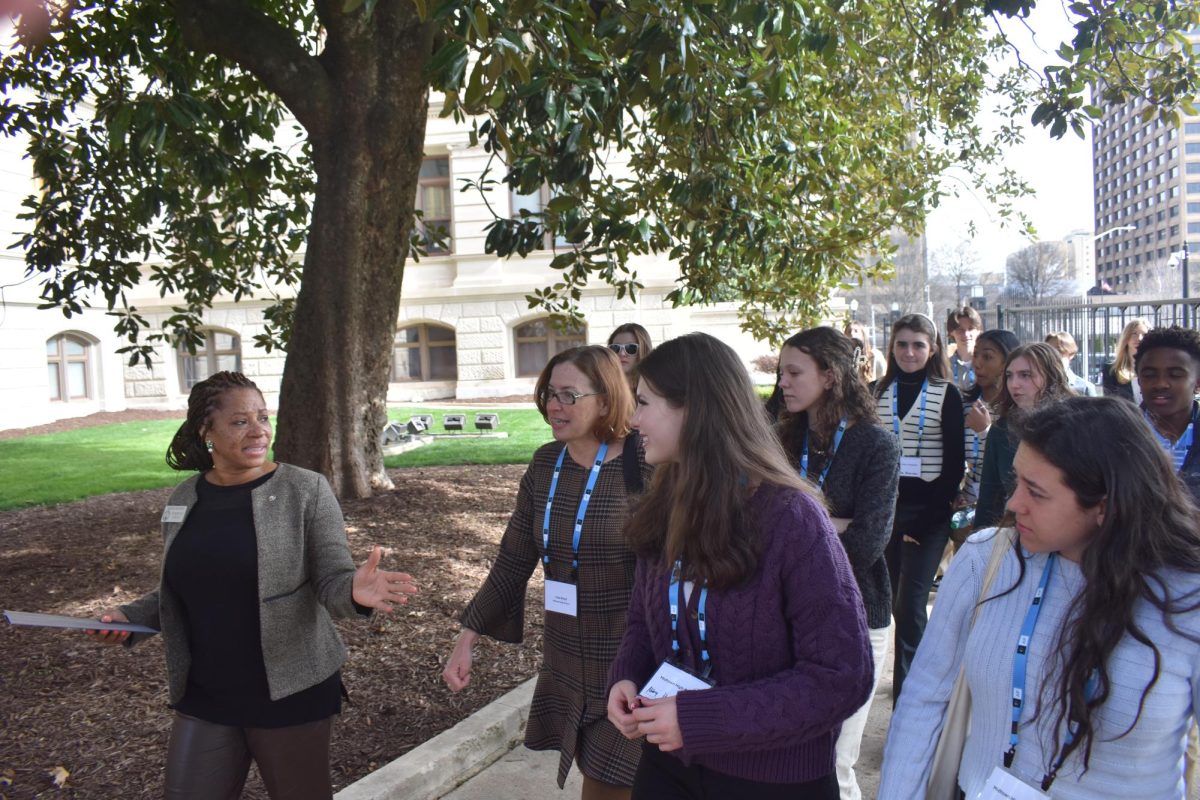On Saturday, May 2, I attended the first Hillary for Georgia organizing meeting for the 2016 election where supporters from across the state met at Manuel’s Tavern to discuss the grassroots efforts of Clinton’s campaign. If you’re new to the election process in the United States, I suspect you’re thinking one of two things: either, “She must mean a 2015 election,” or “Wow, I didn’t know it was already 2016.” Those are the only two responses that I consider reasonable.
No reasonable person would assume that campaigns would start more than a year and a half before the election. Alas, the American political system is not reasonable.
Along with Hillary Clinton, Bernie Sanders–a socialist running on the Democratic ticket–and Republicans Ted Cruz, Marco Rubio, Ben Carson, Carly Fiorina and Rand Paul have officially declared their candidacies for president.
These announcements led to what will be one of the longest campaigns in United States history. In June, 1960, TIME magazine published an article entitled, “Is The Presidential Campaign Too Long?” which concluded that yes, the nine-month long 1960 presidential campaign was, indeed, far too long.
But a nine-month election today sounds like a 100-yard dash to any TV-watching Ohioans, Floridians or Virginians, who are disillusioned by marathon campaigns we see these days.
The fact that U.S. elections are now twice as long as the 1960 election between Kennedy and Nixon doesn’t invalidate TIME’s observation 55 years ago that nine months is still an astronomical length for a political campaign.
The United Kingdom now has elections every five years, but even with longer terms than their American counterparts, the British conduct election campaigns that are much shorter. The U.K. elected its new Parliamentary representatives and, by extension, Prime Minister on May 8. Candidates nominated themselves on April 9, less than a month before Election Day and two weeks after Parliament’s session had formally ended.
The long presidential campaigns in this country make me apprehensive about the political process. Right now, most of the announced candidates are serving U.S. senators. Running for president while acting as an elected official diminishes one’s ability to successfully perform his or her duties.
But what concerns me more than anything is that the longer the campaign, the more time the candidates have to spend money.
Since the McCain-Feingold Act, which banned soft money in 2002, and the Supreme Court’s Citizens United decision in 2010, which led to the creation of super PACS that could directly donate to candidates, the amount of money American candidates can raise has increased dramatically. These reforms have also implicitly increased the amount of money candidates need to raise in order to run a successful campaign.
The upcoming election is projected to cost up to $5 billion. This would be the most expensive election the United States (and undoubtedly the world) has ever seen. The money involved in politics is deeply troubling for a number of reasons, but my main worry is the sheer and staggering cost of running a presidential campaign.
Most campaign money is spent on campaign literature and television advertisements. U.S. citizens, businesses and politicians are spending billions of dollars on political ads while people across the world suffer from a scarcity of food, shelter and other survival necessities. For example, the earthquakes in Nepal that left thousands dead also destroyed $10 billion worth of property. That amount is half of Nepal’s GDP and only twice the estimated cost of the upcoming election. The relative cost of U.S. elections is more than obscene in the scheme of things.
Despite what could be done with the money, candidates feel that raising enough of it is crucial to their success, and by extension, the success of this nation.
Starting campaigns earlier is one of the only ways for candidates to raise more money than their opponents. This leads to a tricky cycle: longer campaigns cost more, but candidates need longer campaigns to raise more money than their opponents. Since campaign finance laws changed, candidates have consistently opted for the longer campaign over the less expensive one.
In the end, however, these longer campaigns hurt the political process in the United States.
Shelby Hodges of Georgetown University published the paper “How Long is Too Long?” in 2012 which concluded, “The length of presidential campaigns does have a profound effect on how, when, and to what extent voters participate. The mere finding that a majority of voters acknowledge the campaign season as long is telling in itself. The long presidential campaign season in the United States is detrimental to voter engagement.”
As I said before, no reasonable person would assume that campaigns would start more than a year and a half before the election, and no reasonable person should want them to.







